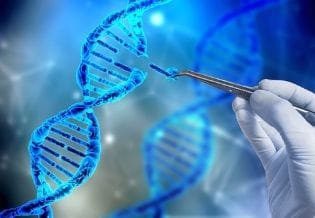About the Journal of Cancer Genetics and Biomarkers
A peer-reviewed, open-access platform dedicated to advancing mechanistic understanding of oncogenesis, tumor evolution, and molecular biomarker discovery - bridging genomic discovery with translational pathophysiology.
JCGB prioritizes research that deepens fundamental understanding of cancer pathophysiology. We seek manuscripts that reveal molecular mechanisms, dissect pathway crosstalk, identify novel biomarkers with mechanistic underpinning, or develop experimental models that recapitulate disease biology.
JCGB Scope: Molecular Mechanisms, Not Clinical Management
We publish research that explains how cancer works at the molecular and cellular level. Studies focused on diagnosis, treatment protocols, patient outcomes, or clinical practice guidelines fall outside our scope. Our emphasis is on discovery, mechanism, and biomarker validation - the foundational science that informs future therapeutic innovation.
Genetic Drivers & Tumor Initiation
Germline mutations, somatic alterations, oncogene activation, tumor suppressor loss, chromosomal instability, and mutational signatures that trigger oncogenesis.
Epigenetic Reprogramming
DNA methylation, histone modification, chromatin remodeling, and non-coding RNA networks that regulate gene expression and cancer cell identity.
Signaling Pathway Dysregulation
Aberrant activation or suppression of PI3K/AKT, RAS/MAPK, Wnt, Notch, Hedgehog, JAK/STAT, and other pathways driving proliferation, survival, or metastasis.
Clonal Evolution & Heterogeneity
Single-cell sequencing, lineage tracing, phylogenetic reconstruction, and spatial transcriptomics that map tumor evolution and subclonal architecture.
Tumor Microenvironment Interactions
Mechanistic studies of immune cell infiltration, stromal reprogramming, metabolic crosstalk, hypoxia signaling, and extracellular matrix dynamics that shape tumor behavior.
Biomarker Discovery & Validation
Identification and mechanistic characterization of genomic, transcriptomic, proteomic, or metabolomic biomarkers for cancer detection, progression monitoring, or resistance profiling.
Molecular Resistance Mechanisms
Adaptive signaling, pathway redundancy, efflux pump upregulation, target mutation, and epigenetic plasticity that enable therapy evasion - mechanistic, not clinical.
Functional Genomics & Model Systems
CRISPR screens, organoid models, patient-derived xenografts, and in vivo systems that validate gene function, pathway dependencies, or biomarker utility.
Computational & Multi-Omics Approaches
Machine learning, network biology, integrative omics, and systems-level modeling that reveal mechanistic insights from complex datasets.
JCGB operates under a single-blind peer review model (double-blind available upon request). Each submission is evaluated for mechanistic novelty, experimental rigor, data quality, and interpretative clarity. Our editorial board comprises internationally recognized experts in cancer genomics, signal transduction, tumor biology, and computational oncology.
Initial Screening
Editorial team evaluates scope fit, mechanistic depth, and ethical compliance within 5 days of submission.
Expert Review
Manuscripts are sent to 2-3 specialists in relevant cancer biology domains who assess novelty, rigor, and mechanistic clarity.
Editorial Decision
Editors synthesize reviewer feedback and provide detailed rationale for acceptance, revision, or rejection - typically within 27 days.
Rapid Publication
Accepted manuscripts undergo copyediting, author proofing, and online publication within 10 days, with immediate indexing and DOI assignment.
JCGB provides comprehensive guidance to ensure manuscripts meet our mechanistic standards. Authors should consult our Instructions for Authors for formatting, data sharing, and reporting requirements. Submissions emphasizing molecular mechanisms, biomarker validation, or disease modeling are prioritized.
Editorial Policies
Review ethical guidelines, data transparency requirements, and conflict-of-interest standards that govern JCGB publishing.
View Policies →Article Processing Charges
Understand APC structure, waiver eligibility, and institutional membership options for frequent contributors.
Review APC Details →Call for Papers
Explore active special issues, thematic collections, and priority topics in cancer genetics and molecular biomarkers.
See Current Calls →Reviewer Network
Join JCGB's expert review community to shape high-quality mechanistic cancer research and earn reviewer recognition.
Register as Reviewer →JCGB advocates for FAIR data principles (Findable, Accessible, Interoperable, Reusable). Authors are encouraged to deposit genomic, proteomic, and imaging datasets in recognized repositories (e.g., GEO, SRA, ProteomeXchange) and share code via GitHub or Zenodo. Transparent reporting strengthens reproducibility and accelerates discovery.
JCGB serves a global network of cancer biologists, geneticists, molecular pathologists, bioinformaticians, and translational researchers. We facilitate special issues, and data-sharing initiatives to strengthen the cancer genomics ecosystem. Prospective guest editors can propose thematic collections via our special issue portal.
Advance Cancer Pathophysiology with JCGB
Submit your mechanistic discoveries, biomarker validations, or systems-level analyses to a journal that values scientific depth, reproducibility, and global accessibility. Partner with an editorial team committed to elevating cancer genetics research.


